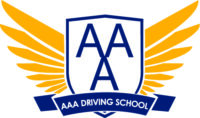Curriculum
1.1 Traffic laws and Regulations
- Type of driver’s licenses
- Graduated licensing program
- Getting your license
- Maintaining a valid driver’s license
- Demerit points system
- Emission testing
1.2 Reason for Traffic laws and regulations
- Current road safety issues
- Seat belts
- Mirrors
- Blind spot
- Child safety
- Speeding
- Impaired driving
- Emergency vehicles
- Insurance
1.3 Levels of traffic laws
- Federal
- Provincial
- Municipal
1.4 Road Control Devices
- Signs
- Signals
- Marking
2.1 Basic vehicle components
- Control Devices
- Instruments and Warning devices
- Safety and Security devices
- Anti-theft devices
- Visibility devices
- Communication devices
- Comfort devices
2.2 Vehicle Safety
- External checks
- Internal checks
3.1 Controlling the Vehicle safely
- Visual tracking
- Smith System
- Steering
- Seating and positioning
- Starting and acceleration
- Optimal Lane position
- Deceleration and braking
- Speed control
- Parking
- Uphill
- Downhill
- Angle
- Reverse
- Parallel
- Changing direction
- Backing
- Merging
- Lane changes
- Right of way manoeuvres
- Turns
- Highway and Freeway driving
3.2 Traction
- Speed and time
- Space management
- Following distance
- Stopping distance
3.3 Friction
3.4 Collision Avoidance
- Critical Situations
- Wheel off road
- Head-on collision avoidance
- Rear-end collision avoidance
- Brake limit
3.5 Skid Control
- ABS
4.1 Adjusting driver behavior
- Risk perception
4.2 Emotions effecting driving
- Emotions and decision making
- Dealing with emotions
4.3 Positive driving attitude and behaviors
- Values and Beliefs
- Motives
- Driving as thrill seeking
- Social factors
- Advertisements and media
- Peer pressure
- Positive attitudes
- Driving is a privilege
- Cooperative driving
5.1 Responding to emergency situations
- Collisions
- Arriving at the collision scene
- Dealing with police
- Emergency vehicles
- Vehicle malfunction
- Brake fail
- Tires blowout
5.2 Safety and Responsibility
- Safety Measures
- Seat belts
- Child restraints
5.3 Conflict avoidance
- Respecting others
- Road rage
5.4 Environmental Responsibility
- Fuel efficiency
- Idling
- New technologies
- Proper and regular vehicle maintenance
- Oil change
- Tune up
- Emission testing
5.5 Lifelong learning
- Changing skills
- Age and driving
- Changing laws and regulations
6.1 Cooperative driving
- Other road users and their needs
- Cyclist
- Motorcycles
- Transit vehicles
- Emergency vehicles
- Trucks
- Pedestrians
- School buses
6.2 Communication among road users
- Vehicle signals
- Hand signals
- Horn
- Headlights
7.1 Impaired driving
- Types of impairment
- Alcohol
- Fatigue
- Medical conditions
- Drowsy driving
7.2 Effects of impairment
- Impaired judgement
7.3 Consequences of impairment
- Collision
- Legal issues
7.4 Distraction
- Inside the vehicle
- Outside the vehicle
8.1 Where to observe
- 360 vision
- Distance scanning
- Peripheral vision
- Blind spots
8.2 How to observe
- Active attention
- Shoulder check
- Mirrors
8.3 Scanning
- Distinguishing hazards
8.4 Perception of personal limits
- Types of drivers
8.5 Dangerous driving
- Aggressive driving
- Street racing
8.6 Risk tolerance
- Confidence
8.7 Accurate risk perception
- Reaction time
- Proactive vs. Reactive action
8.8 Factors effecting perception
- Age
- Experience
- Environment
- Mental factors
8.9 Factors of collision
- Common causes of collision
8.10 Driving Hazards
- Common driving hazards
